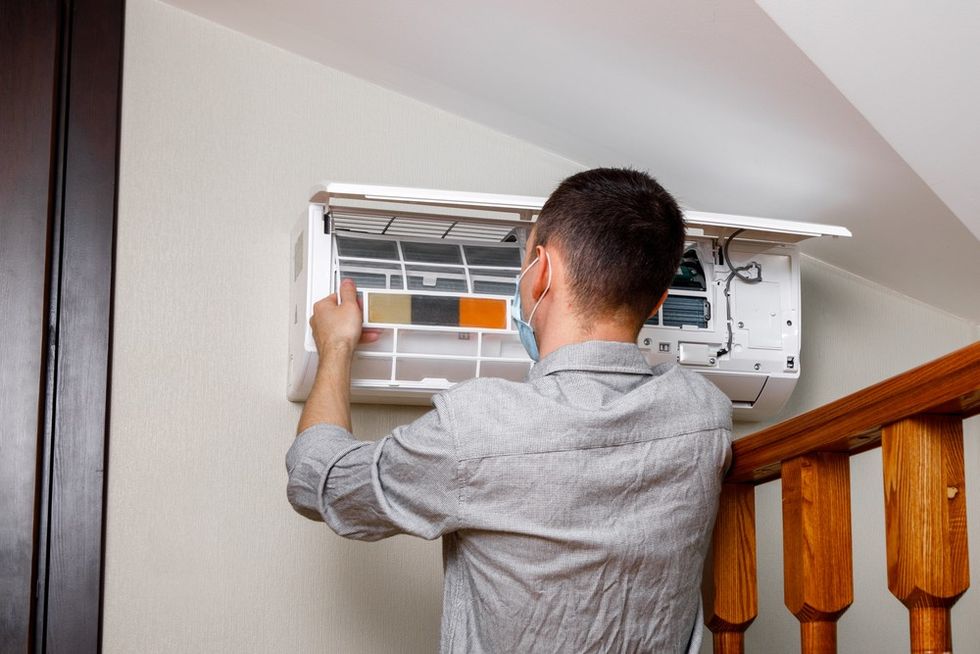The hot and humid weather has arrived in Toronto, smothering the city with high temperatures this week. These heatwaves always beg the question of whether it’s time for rental units to have mandatory air conditioning, or at least, maximum temperature limits, with growing cries from activists to enforce such things. Many heat-related deaths are preventable, they say.
Research released yesterday by Statistics Canada (StatCan) highlighted some telling data when it comes to health risks associated with high temperatures. The research examined 12 Canadian cities between the years of 2000 and 2020: Brampton, Calgary, Edmonton, Hamilton, Mississauga, Montréal, Ottawa, Québec City, Surrey, Toronto, Vancouver, and Winnipeg.
The study found that elevated mortality risks were observed during extreme heat events in most cities for non-accidental and respiratory causes.
The increase in mortality was particularly high for Canadians over the age of 65, according to the report. Notably higher non-accidental mortality risks were observed during extreme heat events for people aged 65 and older in Montréal, Québec City, Surrey, and Toronto. For cardiovascular and respiratory causes, people aged 65 and older had significantly higher mortality risks during extreme heat events in Montréal, and both Montréal and Toronto, respectively.
In the 12 cities examined, 670 excess non-accidental deaths, 115 excess cardiovascular deaths, and 115 excess respiratory deaths were attributable to extreme heat events during the study period.

Interestingly, it also revealed a correlation between heatwave-related deaths and renters, citing a higher risk of such deaths in cities with more renters and fewer extreme heat events. (The assumption is that many rental units lack air conditioning.) Another StatCan study revealed that renters are less likely to have air conditioning. Released last year, the report found that 61% of the national population had household air conditioning, with regional rates ranging between 32% in British Columbia and 85% in Ontario. In general, it found that people living alone and people who didn’t own a home were significantly less likely to have air conditioning. In particular, older adults living alone were especially vulnerable, with significantly lower air conditioning rates compared with the national and Ontario averages.
Landlords aren’t currently legally required to provide air conditioning in Toronto, however, that could change in the not-too-distant future in the face of growing calls to mandate it.
In response to impossible-to-ignore ramifications of global warming, mandating air conditioning has been a hot topic (no pun intended) in recent years, as temperatures have climbed to record-breaking highs. The Ontario Human Rights Commission has been vocal in recent years in its attempt to legally mandate air conditioning in rentals and deem it an essential service to tenants across the province. Calling access to air conditioning a human rights issue, the OHRC has highlighted how people with disabilities, older people, and low-income Indigenous, Black, and other racialized communities are more at risk to heat waves, with little or limited access to air conditioning. Furthermore, these groups are more likely to live in areas with fewer parks of shaded outdoor areas, says the OHRC.
As Toronto’s heat wave persists, so do the voices of those looking for change. Toronto Heat Safety, a new coalition of tenant advocacy and environmental organizations, is calling on the City of Toronto to implement critical actions to help protect Toronto tenants from extreme heat events.
The coalition is calling for Toronto to implement a by-law that will limit temperatures inside residential buildings to no higher than 26C. Other actions that the group is advocating for include providing funds to eligible residents in the city for heat pumps and air conditioning units and providing free TTC rides on extreme heat days.
“Toronto has a minimum temperature by-law that ensures that tenants have heat in the winter,” says Jacqueline Wilson from Canadian Environmental Law Association. “It’s time that Toronto implements a maximum temperature by-law to ensure Torontonians are safe in their own homes during hot summer days, too – especially as the climate continues to warm.”
As the coalition highlights, thanks to climate change, modelling suggests that by the 2040s, the number of days when the temperature exceeds 30 degrees Celsius will grow from 20 to 66 days every year.






















